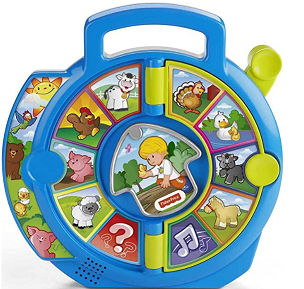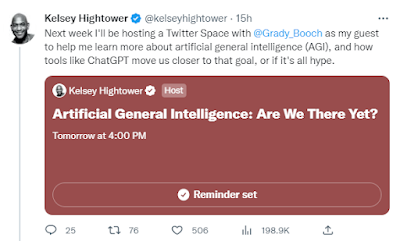Communication and Body Language - The Way we Say It!
Welcome to 2020
Near the end of 2019, I had an excellent opportunity to present a talk that I have been wanting to work on for some time. "The Way We Say It"
In that video I talk a bit about the importance of tone, and body language, perhaps more directly, when and how we respond to tone and body language.
The stereotypical 'geek' is often perceived as socially inept, I am reminded of Sheldon of the Big Bank Theory or by one 'classic nerd' definition i found online
A person who is single-minded or accomplished in scientific or technical pursuits but is felt to be socially inept.
Which leads to a rather interesting 'dilemma'. Let us suppose that a person, such as myself wishes to increase his awareness of body language/tone of voice. Something which I have been successfully 'turning off' or ignoring, and what if by becoming aware of the 'message', there is now a tendency to 'over-exaggerate it'.
Allow me to illustrate with an example. Let us suppose you have close group of friends and/or family and you get together to plan an escape room. It doesn't have to be an escape room, but any game which tends to put the participants in a stressful, semi-competitive, or uncomfortable situation.
Different People re-act to this stress in different ways, and observing body language and tone of voice during this stressful situations, you will observe all kinds of "unusual" behavior, that you may never have seen before. People may become short, less tolerant of others, pull things out of others hands, dominate the conversation. They are doing these things not to be mean people but because they are less emotionally aware of their interactions as they become focused on "solving the problem", or at least 'the problem as they see it'.
If you are really lucky, you can further observe that even though the players are no longer 'behaving their best', a truly empowered team will allow for some latitude because each individual recognizes on some level he/she is experiencing stress, can empathize that the other person is also feeling stress, and can "let go" of the in the moment frustration. Essentially, we 'ignore' the body language, the eye rolling, the things that we otherwise might take a lot of offense at. And this 'ignoring' is a good thing, given the situation and the related circumstances.
So once I have committed myself to recognizing the importance of body language, and reading it, how at the same time do we learn to recognize those situations where we 'ignore' it due to a 'common stressful situation', vs 'act on it'?
The solution would seem to be, in the "act on it". What do I really mean by that?
Example
You are in a meeting giving a presentation on 'the importance of keeping software up to date'. During the meeting, on of the participants makes a "heckle" type comment, uses some form of sarcasm or perhaps outright says something totally humiliating. Giving him/her 'the benefit of the doubt', you choose to 'let it go' and move on, but perhaps this only edges the person on more and more. It is clear you need to address the situation for the benefit of by your talk, and others, so perhaps you accept his comments graciously, and agree to be happy to discuss it more after you have completed the talk.
Afterwards, you now need to enter a crucial conversation to determine "what is really going on"? but you hit a roadblock, despite your efforts the individual in question sees no 'wrongness' to his behavior, and defends himself with 'I was just trying to ask some questions', and you (the presenter took it the wrong way)
But what if the perspective of the 'heckler' is actually right? You were just giving a large speech. This can be a highly stressful situation, perhaps the 'heckler' was nervous too, perhaps they could have expressed themselves better, but then you the presenter took it in an 'over-exaggerating way'?
The 2 KEY elements here in this situation are
a) The Emotions you feel - These effect how you have the conversation with the 'heckler'. If the words generally 'got to you', using the anger/frustration or sadness in the conversation will not reach your communication goal.
b) The memory you experience - Did the heckler really say you were 'a lousy a$$hole who didn't deserve to be up speaking'? He denies it, perhaps you read words that weren't their?
These likely also happen to be the 2 key things that we cannot easily manage or rely upon when we are feeling stressed, so we need to suddenly have this 'hyper awareness' of our feelings, or thoughts, and our memory all during an intensely stressful situation.
And while the 'answer' it to find a way to manage our stress, to cope with the situation is easy to say, it can be much more difficult to "do".
Now for me, I know one coping tool that is very effective can be to think of the problem like a 'scientist'. To focus on the data, and the facts, and the logic. To look at it in a non-judgmental way, to change my perspective, but this has it's challenges too. While it can help maintain a calm and relaxed disposition, it can come off as 'cold and unemotional' to the recipient. It can also cause my own non-voluntary body language such as 'eye rolling' or a demeaning or contemptuous tone of voice that is off-putting to the recipient.
The 'eye rolling' is a very hard thing for me to control, or even be aware of. and the tone of voice is me trying to speak with a tone compassion, problem solving, and reflective. Both of these things are important for me to continue to work on and develop to be the best I can be.








Comments
Post a Comment